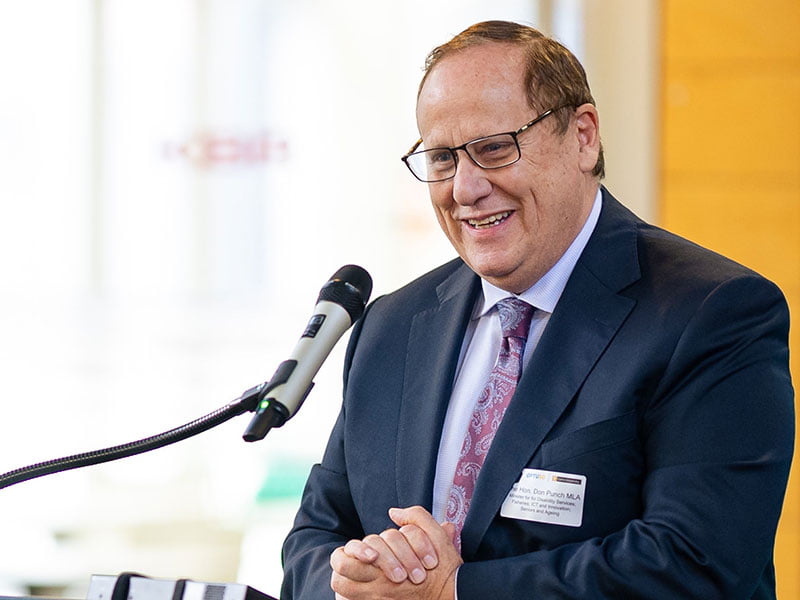Western Australia’s new services and ICT minister Don Punch has vowed to keep citizens at the centre of the state’s rapidly transforming services program and to work more constructively with his national counterparts on federal services.
Following Labor’s return at the Western Australia state election this year, Mr Punch was made a minister and given the Disability Services; Innovation and ICT; Seniors and Ageing; and Fisheries portfolios.
The state government also recently launched a new five-year digital strategy.
Mr Punch’s professional background is in social work, psychology and regional development, including nearly four decades in the public service before entering Parliament in 2017.
On government services, the new minister is clear.
“You have to put people at the forefront,” Mr Punch tells InnovationAus.
“Really, the ultimate test is how does this improve the quality of life for our communities? How well does it work for them from their point of view, rather than from an agency or a government point of view?”

Digital services offer a chance to deliver those services more seamlessly and reduce some of the geographical barriers faced by remote communities right around Australia, but particularly in Western Australia.
The services must also be culturally appropriate and accessible to citizens of varying age, language, abilities, and geographies, Mr Punch said.
“That’s why we’ve adopted the notion of digital first not digital only. So that there are pathways for people to engage with government that might be through more traditional methods,” he said.
The state’s new whole-of-government services, which promises to put the state at the forefront of global digital change, is built on that citizen centricity, Mr Punch said.
Like other states, the goal is for services built around life events delivered in a way that maximises peoples’ interactions with government.
But it presents new ICT challenges, not least of which is the backend work required to offer citizens a single access point to multiple services. Mr Punch is confident because of a reduction in major government departments over the last five years and a successful pilot program.
“We’ve got a much greater potential to bring the back end of all of those services together. Now that’s a pretty significant undertaking because agencies have got a lot of loyalty to what they’ve built up to their own website. They’ve got a lot of investment in technology that had to be lined up,” he said.
Data dashboards will also be used to find and sell the benefits of the unified approach and technology to agencies.
“The value of data to agencies, from a policy point of view, means that you can actually create a pull through of the ideas and the technology rather than having to mandate and force it on agencies,” Mr Punch said.
“Having said that the support of ministers is very important and that’s why we’ve adopted a whole of government position on it.”
Mr Punch launched the strategy in late June and will work with the state’s Office of Digital Government to implement it. Specific roadmaps are now being prepared by agencies, with funding announcements to be made in the state budget in September.
The Western Australian Government is also working with its federal counterparts on a “national approach” to the adoption of digital government, Mr Punch said.
“[We are] looking at the notions of sharing data, learning off each other, [and] best practice arrangement in each state,” he said.
“All of those combine into the thinking of how we might roll something out that’s not only compatible across government agencies within a state but potentially is able to link up at a national level through the federal government’s systems.”
Mr Punch, along with digital ministers from each state and territory and the Commonwealth, signed an agreement last month to share data by default and work together on areas of “national priority data areas”.
The intergovernmental agreement follows a series of confidential meetings between the ministers and subsequent communiques which have provided few details.
But Mr Punch insisted the meetings are genuinely collaborative and working towards “higher order objectives around how we make the digital governments of the future the best it can be”.
“It’s a genuine attempt at a national level to achieve collaboration across a raft of areas,” Mr Punch said.
He points to service scenarios where a citizen needs to interact across both state and federal agencies or is moving from one jurisdiction to another. Governments everywhere need to do a better job in these situations, according to the WA Minister.
“Really, the major objective is how can we make that a lot easier as a national group – as a federation,” he said
“So that if you’re dealing with the Commonwealth and you’re dealing with the state, there’s a bit of synchronicity between all of that… So that people don’t have to shop through multiple agencies. They can actually have a seamless approach to it that provides an outcome much more quickly than is currently the case.”
Do you know more? Contact James Riley via Email.

